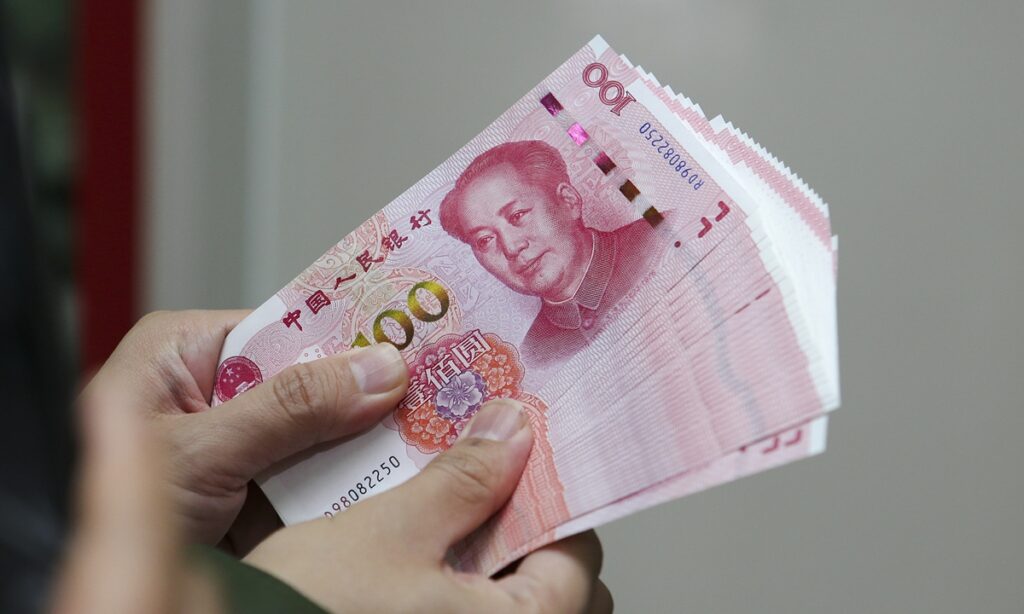Pakistan has reportedly paid with yuan for an oil trade with Russia, the South Asian country’s petroleum minister said on Monday, making Pakistan the latest country to join the global de-dollarization campaign. Analysts said that Pakistan’s move sends a positive signal that more countries have begun to accept the yuan as a cross-border payment tool, and also that the Chinese currency’s function as an international settlement mechanism and means of circulation is strengthening.
They said that it is an unstoppable but long-term trend for countries to ditch the US dollar, and a diversified monetary system may be introduced in the future if the US no longer plays a leading role in promoting economic globalization and ensuring international currency system stability.
Pakistan paid for its first government-to-government import of discounted Russian crude oil in yuan, Reuters reported on Tuesday, citing Pakistan’s petroleum minister Musadik Malik.
He said the purchase, Pakistan’s first government-to-government deal with Russia, consisted of 100,000 tons, of which 45,000 tons had docked at Karachi port, with the rest on the way. Pakistan made the purchase in April.
“It’s market behavior for countries to use third-party currencies for cross-border settlement, which shows that other countries increasingly accept the yuan as an international currency. The yuan’s function in international settlement and as a means of circulation is strengthening,” Tu Yonghong, a professor at the International Monetary Institute at Renmin University of China in Beijing, told the Global Times on Tuesday.
Pakistan’s move follows those of a number of other countries. In February, the Central Bank of Iraq said that it plans to settle trade with China in the yuan to improve Iraq’s access to foreign currency, while China National Offshore Oil Corp and France’s TotalEnergies completed China’s first yuan-settled liquefied natural gas trade using cross-border yuan settlement in March, the Xinhua News Agency reported.
Zhou Mi, a senior researcher at the Chinese Academy of International Trade and Economic Cooperation, told the Global Times that these countries’ use of the yuan helps accumulate experience for larger-scale use of the currency, adding that more countries are likely to follow suit.
Since the beginning of 2023, global de-dollarization has gained momentum, as concerns about the US dollar’s stability and doubts about the country’s creditworthiness are prompting more countries, especially emerging economies, to flee from the greenback.
De-dollarization is a general trend, though it’s a long-term trend and cannot be achieved overnight, Tu said, noting that countries have stepped up their efforts to diversify the currency system since the 2008 financial crisis to deal with global financial and trade instability.
According to data released by the IMF, the dollar’s share of official gold and foreign currency reserves fell to a nearly three-decade low of 58 percent as of the fourth quarter of 2022.
Trade settlement is the basis for the internationalization of any currency. China is the major trade partner of more than 140 countries and regions, serving as the foundation of the yuan’s internationalization, Tu said. In addition to political considerations, other countries use the yuan for cross-border settlement and reserves mainly due to the stability of the Chinese currency and its attractiveness as a safe haven, she said.
(Global Times)




